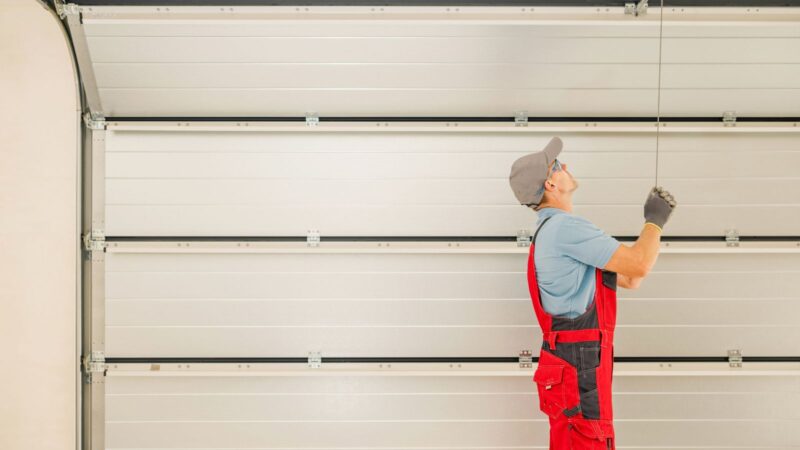
Garage doors are among the most used entry points in homes, relied upon for both security and convenience. What many homeowners don’t consider is how dramatically the weather affects their performance. Seasonal shifts can lead to expanding components in the summer, freezing parts in the winter, and moisture-related issues during rainy seasons. Each condition places a different kind of strain on the door system, making it more vulnerable to wear and misalignment over time. We will explore how temperature fluctuations, humidity, and weather exposure affect the mechanics and materials of garage doors. Addressing weather-related issues proactively ensures smoother operation year-round. As the seasons change, garage doors often become the first indicators of broader home maintenance needs. Whether it’s a motor that hesitates on cold mornings or panels that swell with heat, recognizing the signs of seasonal stress early is a major advantage. Weather impacts every moving part, from tracks to sensors to seals, and should never be overlooked in routine maintenance.
A Home Feature Affected by Weather
- Cold Weather and Its Impact on Mechanical Parts
When temperatures drop, garage door components react in several ways that affect function. Metal parts, such as springs, tracks, and hinges, contract in colder air, which can cause stiffness or misalignment. The lubricants used to keep these parts moving smoothly may also thicken, losing their effectiveness. As a result, doors may open more slowly, emit grinding sounds, or refuse to respond to openers at all. Even weather seals, which are meant to insulate the garage space, can become brittle in the cold, allowing drafts and moisture to seep in. These conditions not only strain the system but also increase the chances of freezing-related damage. For homeowners noticing irregular movement or unusual noises during colder months, garage door repair Abbotsford services often include seasonal checks that address these exact problems. Timely repairs and winter-specific lubrication can prevent more extensive damage later on. Preparing for cold weather with proper maintenance is essential to keeping doors running reliably through the season.
- How Heat and Humidity Influence Door Materials
Summer brings a different set of challenges, especially for garage doors made from wood or materials that are sensitive to heat. High temperatures can cause wooden doors to swell or warp, especially if they’re not sealed or painted properly. This swelling can interfere with the door’s ability to move within its track, leading to scraping noises or resistance during opening and closing. Metal doors, on the other hand, expand when heated and may place additional pressure on hinges or brackets, loosening hardware over time. Humidity compounds the issue by encouraging rust on uncoated metal parts and moisture buildup around electronic sensors. The warmer months may also cause garage openers to overheat, particularly if the motor is older or working harder to overcome friction in the system. To maintain performance during hot seasons, regular checks on door balance, alignment, and insulation become crucial. These measures help reduce wear caused by repeated expansion and contraction.
- Rainy Seasons and Water-Related Garage Door Damage
Rain and moisture present problems that go beyond fundamental mechanical concerns. Water can infiltrate small gaps in the seal around a garage door, leading to pooling or even interior damage if the drainage around the garage is poor. Over time, water exposure promotes rust, especially on springs, brackets, and cables. Rust weakens these components, making them more likely to snap or break under tension. If left untreated, even minor leaks can compromise the integrity of electrical components, such as openers and safety sensors. During particularly wet seasons, rubber gaskets may degrade faster, allowing more water to seep into the interior space. It’s also common for mold to develop along the edges of the door or inside the weather stripping. Addressing water-related issues with proper drainage, weatherproofing, and regular inspections can extend the life of the entire system. Many maintenance services include waterproofing checks and drainage evaluations as part of their seasonal care plans.
Garage doors face environmental stress from all directions—freezing air in the winter, heat in the summer, and moisture during rainy seasons. Each condition brings its risks, but consistent care and early intervention prevent those small problems from becoming expensive breakdowns. Seasonal awareness is key. What might appear to be a minor issue today—slow movement, strange sounds, or a small leak—can evolve into a more significant mechanical failure if ignored. Regular inspections tailored to the time of year can help identify these early warning signs and resolve them before they escalate. Garage doors aren’t just passive features of a home; they are constantly moving systems that rely on tight tolerances and precise performance. Recognizing how seasons affect those moving parts allows homeowners to stay ahead of repairs and protect their investment in the long run. When garage doors perform well in every season, they contribute not only to household convenience but also to long-term safety and efficiency.

